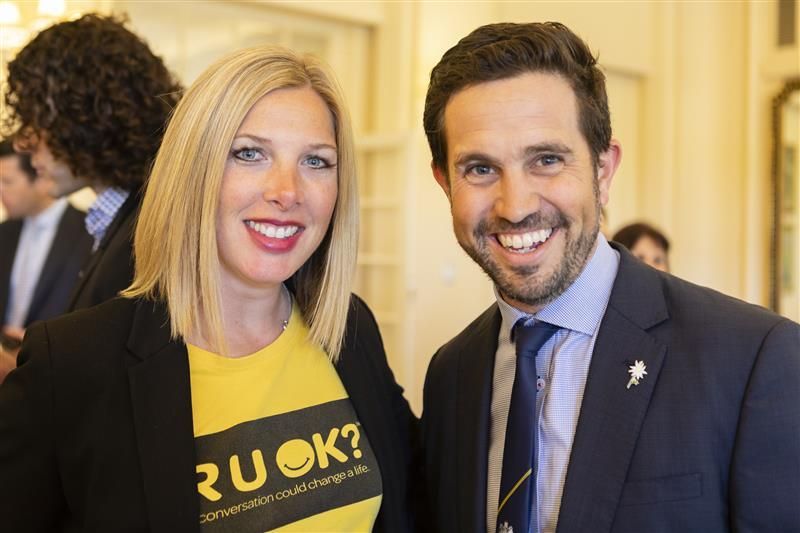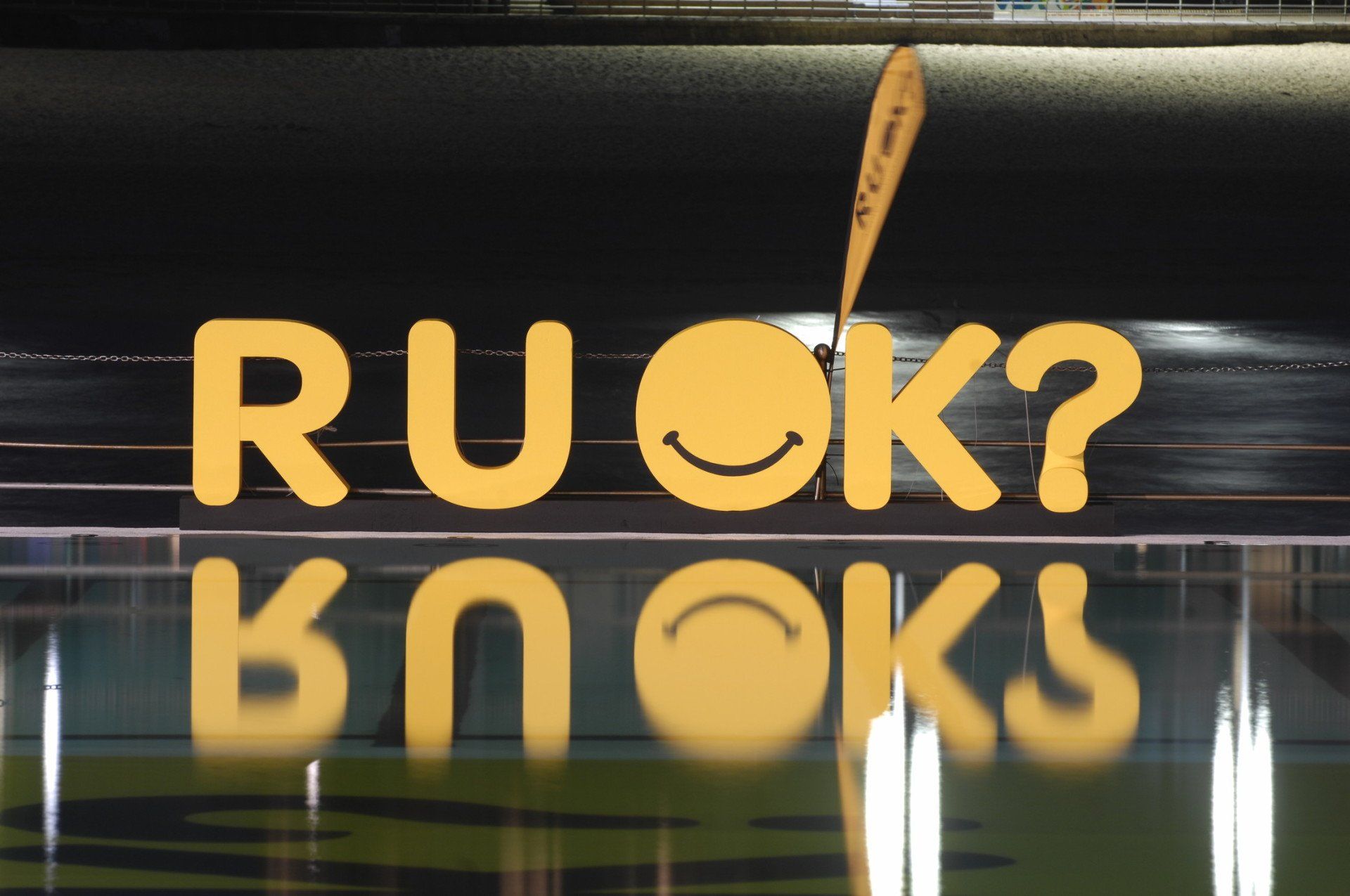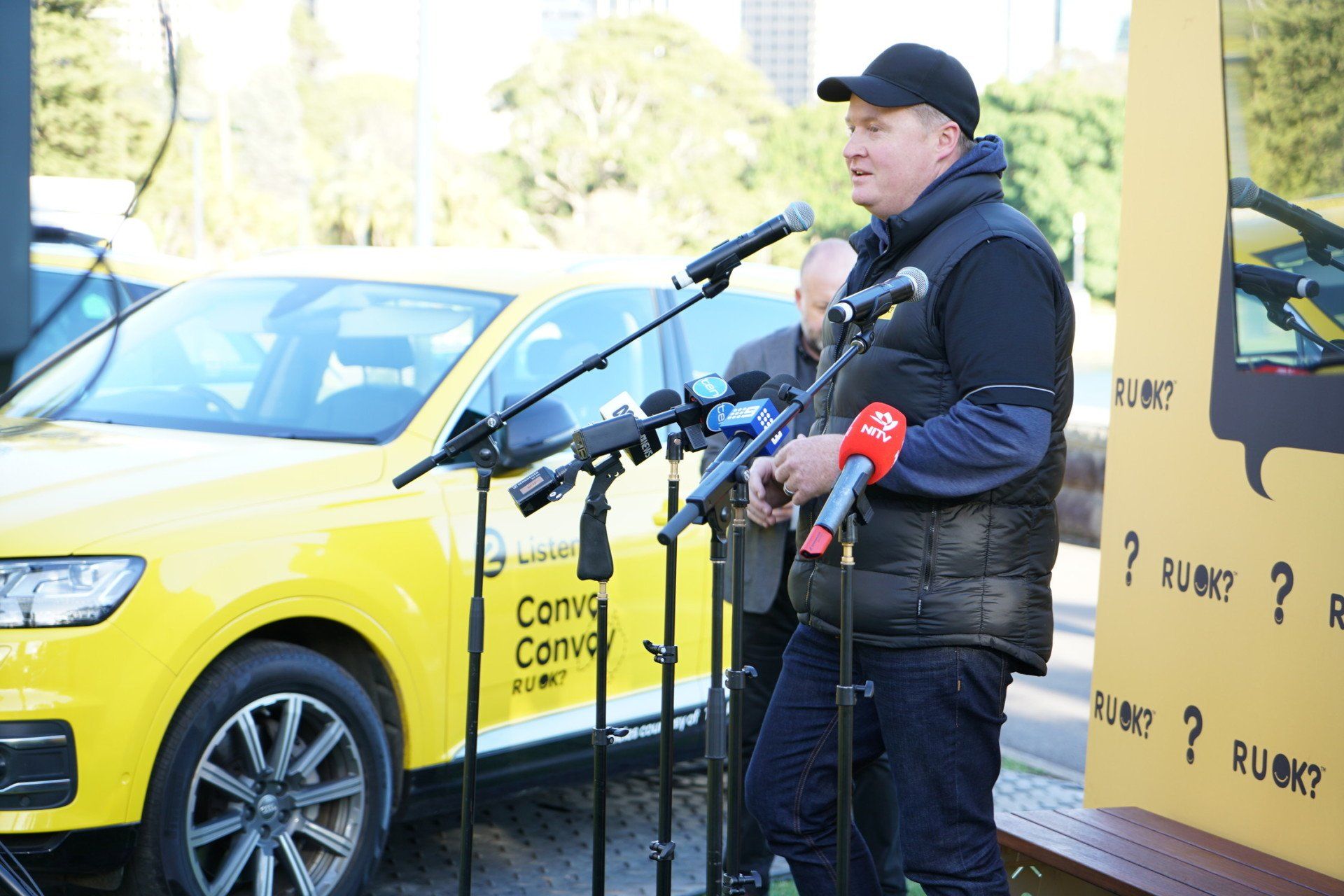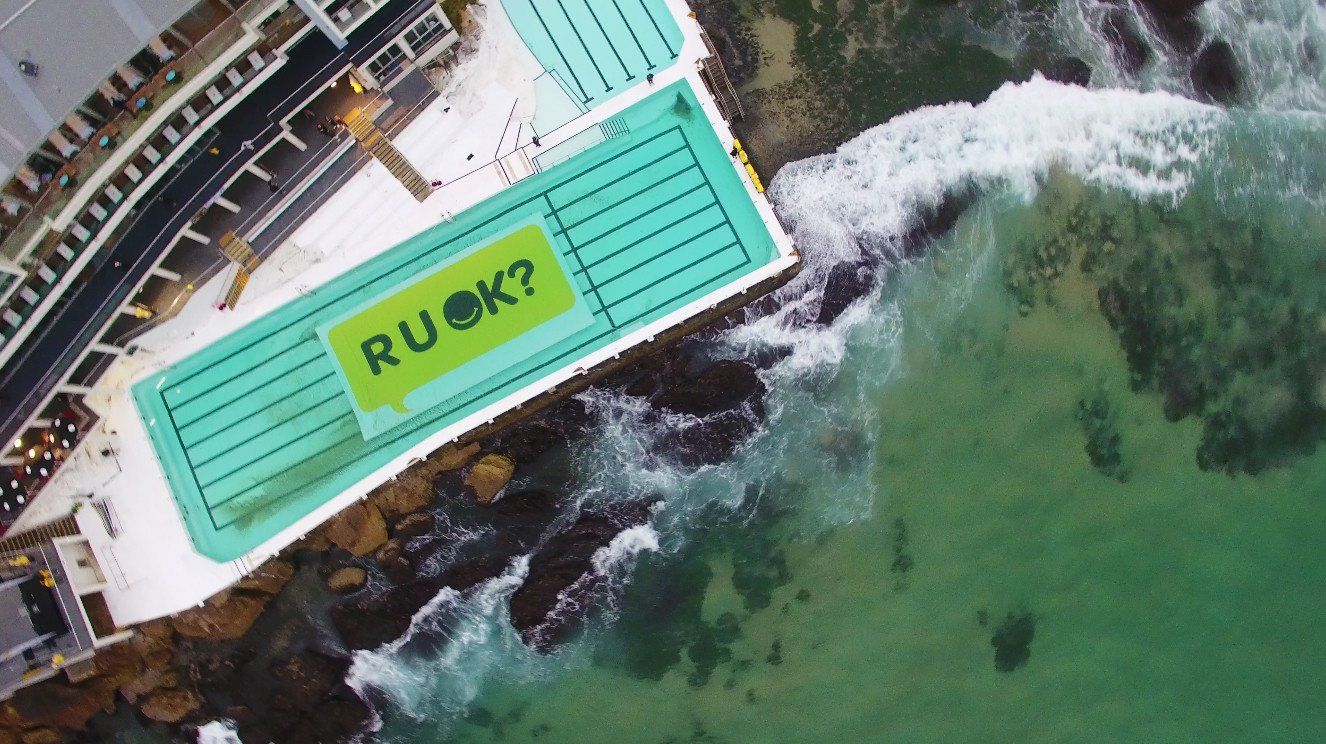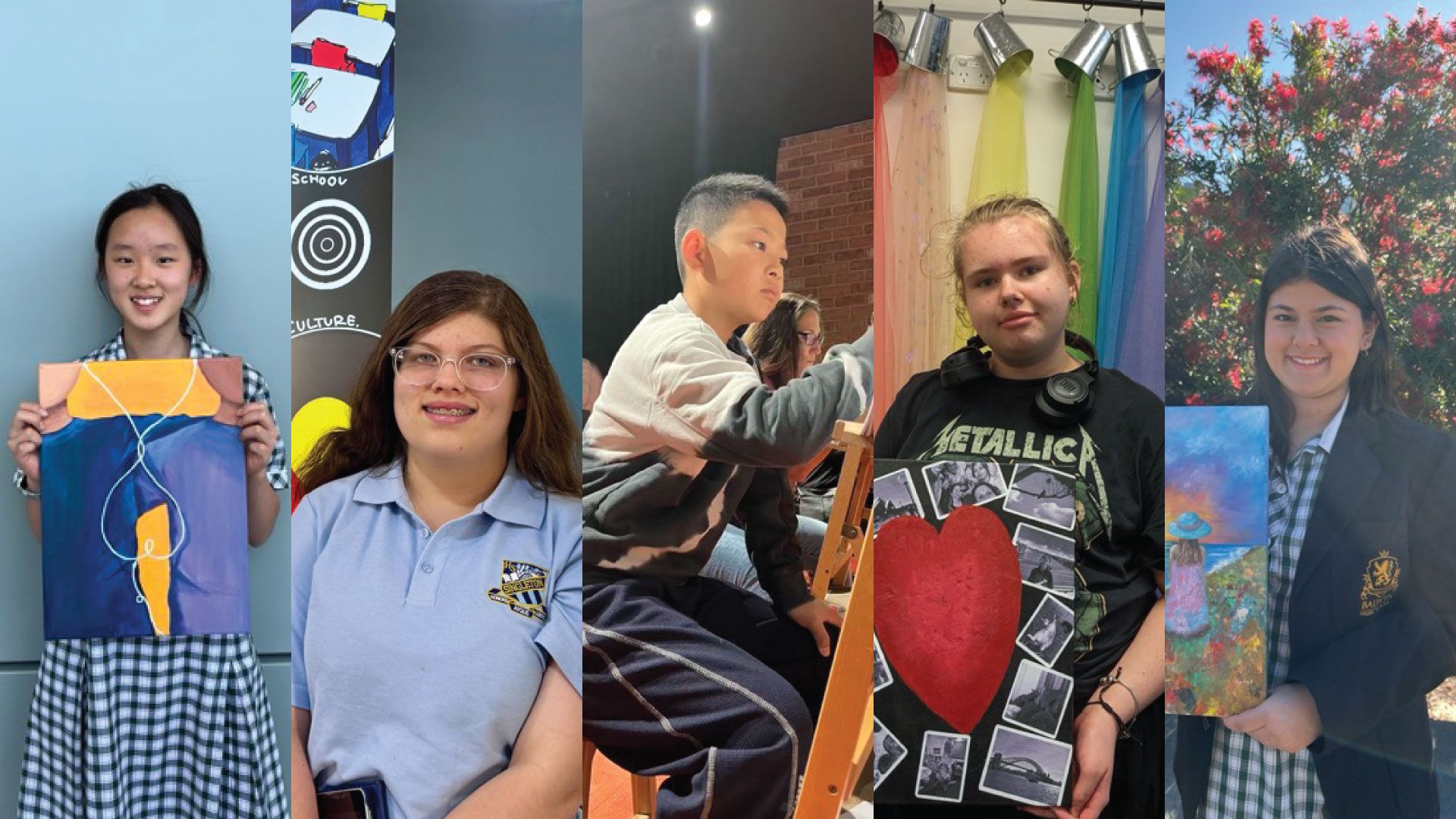What working with R U OK? has meant - A reflection from departing CEO Brendan Maher
What working for R U OK? has meant – A reflection from departing CEO Brendan Maher
After almost six years as R U OK? CEO I have decided it’s time to pass the baton to a new leader.
Leading R U OK? has been an absolute privilege, the most rewarding and meaningful work that I’ve been involved with.
It was a photo finish with being part of Lifeline’s senior leadership team, an amazing organisation that helps thousands of Australians find different perspectives every day. Many calls to Lifeline give people a reason to keep going. What could be more important than that?
Suicide remains one of the biggest challenges of our generation and Australia would be a very different place without the tireless work being done Lifeline and so many other organisations such as Beyond Blue, headspace, Reachout Australia, Kids Helpline, Suicide Callback Service, Black Dog Institute, Everymind, SANE, Suicide Prevention Australia, Mental Health Australia, QLife, United Synergies. Just to name a few! This work will never be finished, but these organisations alongside hundreds of others are working harder than ever to create stronger, more connected and resilient communities.
It’s hard to believe that 2019 will be R U OK?’s 10th year. A decade has rolled over in the blink of an eye. In 2009 I received an invitation to attend Parliament House for the launch of a new campaign. It was called R U OK?Day. Gavin Larkin, a Sydney-based advertising guy had decided to start a new day to encourage us to ask others, ‘R U OK?’. It was a really simple idea and Gav had just exploded into the sector. I didn’t know much about him, but he had managed to convince the Federal Government to provide a funding grant and the then Health Minister, Nicola Roxon, to launch the campaign, so I was impressed by his chutzpah from day one.
Gavin had a deep commitment to the cause; he lost his father Barry Larkin to suicide in 1995. In the lead-up to Barry’s death, he had withdrawn and isolated himself from friends and family. Gav always found it difficult to explain to his kids why their grandfather wasn’t around and tormented himself about what he might have done differently.
A very successful man in his own right, one of the senior leaders in the STW Group (now WPP AU NZ), Gav used his resources and contacts to start a movement which has become one of Australia’s most recognised health promotion campaigns.
As Gav strived to save lives, cancer sadly took his in 2011, just weeks after the third R U OK?Day. There’s been two Australian Story episodes about Gavin Larkin, one in 2011 focused on his personal story and last year, reflecting on the growth of the movement and where the family is now, nearly a decade later. If you haven't watched them, I urge you to find them online to get a real sense for the man Gav was, his relentless drive and motivation for change.
2009 was also the year that Lifeline completed a submission for a Senate Inquiry into Suicide in Australia. In the five weeks it took to put this submission together, we received 129 personal stories from people impacted by suicide. I read every one of them and they left a profound and lasting impact.
I believe that the Senate Enquiry, and the courage and bravery of the people who shared their stories, was a turning point for putting suicide prevention on the agenda for Government and policy makers. We have come a long way, but still have a long way to go.
So how did I come to be working with R U OK?
In March 2013 after seven incredible years, I left Lifeline to explore new horizons. My last Lifeline engagement was to host a team of supporters on the Kokoda Trek, over ANZAC Day, for nine gruelling and very wet days. It was one of the most amazing experiences of my life.
A few months later I received a call from Dawn O’Neil, my first CEO at Lifeline. Dawn was consulting to the R U OK? organisation and helping them with their strategic plan. As part of this, they had decided to expand the team with a full time General Manager, who would work under the CEO in a team of five people based in Sydney. With kids at school a move to Sydney wasn’t on the cards but a commute to Sydney a couple of days a week could be managed. I applied and I got the gig. It soon evolved into the CEO role after Janina Nearn, our former CEO who was alongside Gavin Larkin from the beginning, stepped down to look after her twin boys.
When I arrived, R U OK? was in really good shape. What had been achieved with two full time and two part time staff was extraordinary. At the time however its two major partnerships with Gloria Jeans and Medibank Private were coming to a natural conclusion and not being renewed. The financial forecasts were going to limit what we would be able to do going forward.
Following a combination of hard work, some good luck and some sleepless nights, we managed to get Hungry Jack’s and Virgin Mobile signed up as major partners. We also renewed two significant partnerships with Bristow Helicopters and SuperFriend.
Some further attention to supporting a community appetite for fundraising and events and a growing demand for merchandise meant the wheels were really turning. Add to that, two successful national bus tours and two national Conversation Convoys.
R U OK? now has a team of nine and a strong balance sheet. Most importantly, a strong and growing evidence base (via formal evaluation) that R U OK? is positively influencing the behaviour of Australians.
Gav’s story and influence remains a significant part of R U OK?’s narrative, as is the ongoing involvement of the Larkin family. Gav’s wife Maryanne (Maz) and their kids Josie and Van remain very involved with the charity. So too does Gav’s mum Maureen, stepfather Geoff and brothers Aya and Del.
I owe a huge amount of gratitude to R U OK?’s Board. In particular, our Board Chair Mike Connaghan, who has always been accessible, supportive and allowed us to get on with our job. It’s empowering to know that the board trusts you and has your back. Thanks also to current board members - Aya Larkin, Graeme Cowan, Janina Nearn (who gave me a start), Barry DuBois, Kathryn Howard, Mark Soulos, Jack Singleton and Trent Millane. Thanks also to previous board members - Professor Helen Christensen, David Liddiard, the late Barbara Hocking, Margaret Zabel and Joe Talcott.
I also owe so much to my current and former colleagues – all of whom punch well above their weight. To Katherine Newton (Campaign Director), Ruth Markham (Strategic Partnerships Manager), Lisa Minner (Media/PR Manager), Anastasia Symons (Brand/Comms Manager), Louise Mullane (Office Manager and Project Support), Kristina Lawrence (Community Engagement Manager), Lindy Hodgson (Merchandise Manager) and Mike Houston (Communications Officer). To our former Campaign Director Bec Lewis, Fiona Nearn (Media/PR) and Janina Nearn (CEO) – we are forever grateful for the incredible work that you guys put in during R U OK?’s formative years.
We are very grateful for the support and commitment from The Australian Government and our corporate partners, which significantly strengthen the reach and impact of R U OK? I would also like to acknowledge the invaluable expertise we receive from our Scientific Advisory Group, Conversation Think Tank and Creative Hub. These individuals provide their time freely and add real substance, depth and credibility to R U OK?’s initiatives.
What has working for R U OK? meant?
There’s something about a movement like R U OK? that gets under your skin. In fact, it becomes a big part of your identity. Not just professionally, but personally. As much as I love everything about my job, I have decided to make a move at a time when things are in really good shape.
When you work in the suicide prevention space and are a key figurehead of the organisation you’re representing, you often share a different level of confidence with friends and family but more often than not, strangers. In a social setting when meeting new people the almost inevitable question arises; ‘So what do you do for work?.’ It will often set a scene for a highly engaged and deeply personal conversation. If I’m honest, there are times when I wish the answer to that question could be ‘I’m an IT analyst’ (not that there’s anything wrong with being an IT analyst). But, because I answer, ‘I work for R U OK?’ a much deeper conversation unfolds, as it should. You can’t advocate for meaningful conversations without being authentically willing to have one.
It’s a big responsibility and one that I take very seriously. I’d be lying if I said it was always easy. In fact, some of these conversations can have a sustained impact which requires self-care, debriefing and checking-in again with the person.
Sometimes the very thing that you’re working so hard to prevent, circles very close to home.
The death of Annalise Braakensiek last week was extremely difficult – both personally and professionally. My heart hurts for her family and loved ones. The circumstances of Annalise’s death which have been reported in the media are entirely speculative at this stage. I hope to my very core that Annalise, who did so much to help others, wasn’t distressed and in crisis when she died. The sunrise memorial service at Bondi Beach on Wednesday, January 16, showed just how much she was loved and respected and we will continue to amplify our voice, just as Annalise lent hers to our cause.
In a few months, my journey as R U OK?’s CEO will come to an end. I’ll continue to stay involved in some capacity because I believe deeply in Gavin Larkin’s conviction that a conversation can change a life.
My gut is telling me it’s time to step aside and let someone else continue Gav’s legacy. I’m grateful for time spent at the helm, it’s made me a better person, helped me take my own blinkers off and I think Gav would be pretty happy with where things are at with R U OK?, today.
